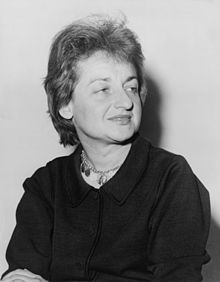Betty Friedan: A Catalyst for Feminist Revolution

In the tapestry of Women’s History Month, the name Betty Friedan shines brightly—a beacon of courage, resilience, and unwavering dedication to the cause of gender equality. As we celebrate her legacy, let us delve into the extraordinary life of this pioneering feminist and the profound impact of her activism.
Born on February 4, 1921, in Peoria, Illinois, Betty Friedan came of age in a society that prescribed narrow roles and expectations for women. After graduating from Smith College, Friedan pursued a career in journalism, where she witnessed firsthand the stifling limitations imposed on women in the post-war era. It was this realization that sparked her lifelong commitment to challenging gender norms and advocating for women’s rights.
In 1963, Betty Friedan burst onto the national stage with the publication of her groundbreaking book, “The Feminine Mystique.” In this seminal work, Friedan articulated the frustrations and aspirations of millions of American women who felt trapped and unfulfilled by the confines of domesticity and traditional gender roles. “The Feminine Mystique” ignited a feminist revolution, sparking conversations about gender inequality and inspiring women to demand change.
Despite the groundbreaking success of “The Feminine Mystique,” Betty Friedan faced considerable backlash and opposition from traditionalists and anti-feminists who sought to maintain the status quo. She was labeled as radical and divisive, and her ideas were dismissed by many as dangerous and subversive. Yet, Friedan remained undeterred, her commitment to women’s liberation unwavering in the face of adversity.
One of Betty Friedan’s most enduring legacies is her role in founding the National Organization for Women (NOW) in 1966. As NOW’s first president, Friedan helped to shape the modern feminist movement and mobilize women across the country to advocate for equal rights and opportunities. Through grassroots organizing, legislative advocacy, and public education campaigns, NOW played a pivotal role in advancing women’s rights and challenging systemic sexism and discrimination.
Betty Friedan’s advocacy helped to catalyze significant legislative reforms that expanded opportunities for women and dismantled barriers to gender equality. In 1972, Congress passed Title IX of the Education Amendments, which prohibited sex discrimination in federally funded educational programs and activities. Additionally, Friedan’s influence contributed to the passage of the Equal Pay Act of 1963 and the legalization of abortion with the landmark Supreme Court decision in Roe v. Wade in 1973.
As we celebrate Women’s History Month, let us honor the enduring legacy of Betty Friedan—a woman whose courage, vision, and unwavering commitment to justice continue to inspire us all. May her life serve as a reminder of the power of activism, the importance of solidarity, and the enduring quest for a more just and equitable world for all.
Sign up for Kristy's Newsletter!
Get all the updates on upcoming books and events!
